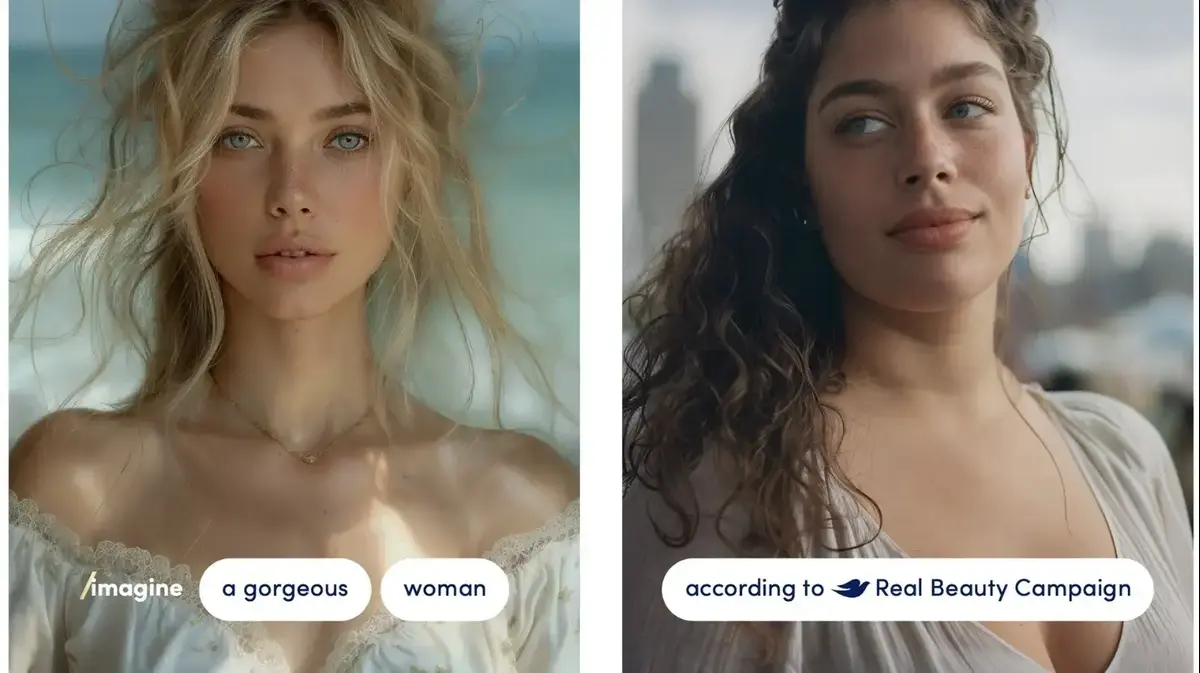Dove is the first beauty brand that clearly and unequivocally commits not to incorporate artificial intelligence in its advertising. The beauty company, which engraves on its banner the promotion of natural and diverse beauty, decided once again to go against the world of classic advertising and not surrender to working with artificial intelligence applications, as many in the industry do today. Dove announced a few days ago that it will continue to use only human models.
Women dedicate a whole year of their lives to care and beauty
As part of the brand's 20th anniversary celebrations, Dove published a new study that examined women's perception of beauty around the world. The study showed that as of 2024, more than one in three American women devote a year of their lives to achieving what they consider to be their ideal appearance or body. The study also finds that two out of every three women believe that they are expected to be more attractive compared to their mothers' generation.
For comparison, in 2004, when the brand first adopted the promotion of natural beauty, only 2% of women claimed that they were not satisfied with their appearance. It seems that as technology advances, the pressure and standards increase.
90% of online content is expected to be produced using artificial intelligence
Natalie Zahar./Sally Ben Ari
As of today, about nine out of ten women claim to have been exposed to harmful content that presents an impossible beauty ideal online. For years we have been exposed to content that presents an illogical ideal of beauty in advertising, social media and the various communication channels, but with the introduction of the worlds of artificial intelligence, the issue becomes more disturbing.
Dove's research found that 90 percent of digital content is expected to be produced by artificial intelligence by 2025, so we are about to be exposed to a rising demand for an artificial beauty ideal, and subsequently to depression due to dissatisfaction with our appearance.
The world of marketing is facing forward. Already today, advertising agencies are starting to integrate artificial intelligence tools into their work routine. Those who have followed the recent campaigns of Coca-Cola, Alfa Romeo, the fashion brand Revolov, and more, understand that soon we will be completely there and will not be able to distinguish between human presenters and when they are virtual. As time goes by the virtual characters will look more and more real.
AI-based fashion production of the brand Revolve./Revolve
AI campaign of the Casablanca fashion brand./Casablanca
Positive "prompting" beats stereotypes
Anyone who lives in the world of artificial intelligence has certainly experienced "prompting" - writing instructions for artificial intelligence models. For example, we can ask Midgerani to make us a model with black hair, blue eyes and brown skin that is lathered with white body soap. The image generator will create four images for us that meet the definition and from there we will continue and refine the instructions until we reach the appropriate result.
The default results that the system knows how to produce today are based on data available on the Internet. Because of the way the algorithm is built, the results show products of stereotypical women. Although women know that these are machine-made images, the psychological effect still affects them.
In a survey conducted by Dove, she found that 39 percent of those surveyed claimed to be sensitive to "pressure to change their appearance because of what they see online, even when they know it's fake or created by artificial intelligence." As a result, the company decided to create a new instruction manual - Real Beauty Prompt - which will enable new digital standards of beauty to be defined.
Not like everyone
The introduction of artificial intelligence allows us to develop a new kind of creativity. These are not only effective tools, but also a way to convey a message to the general public, who examines with curiosity and fear the technologies that are changing the world. Part of the challenge for companies is to think how to produce a new type of dialogue with the audience.
Some brands, such as Alfa Romeo, connect with the audience by allowing them to create the car of the future using photo generators.
Dove chose a different and interesting way. The company wants to help its audience develop critical thinking towards these technologies. She combines her "I believe", which advocates true, natural and diverse beauty, to help women maintain their perceptions, even when such a great revolution is coming to the world.
All the best to Dove! We will continue to follow.
Natalie Zohar is a researcher of trends and virtual worlds, a lecturer at Reichman University.

